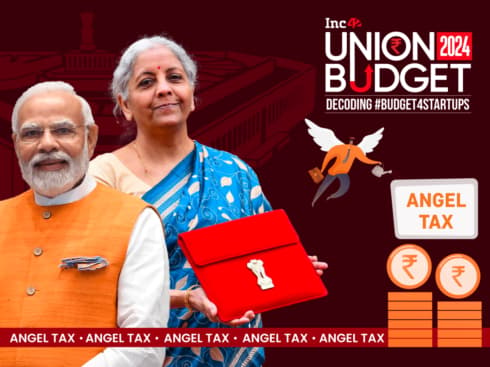
In my previous post, I had highlighted out some industry-level challenges with the EdTech sector as a whole.
In this post, I want to focus more on common mistakes I have seen EdTech companies make and how they could avoid them.
This is a brief amalgamation of my learnings of the past four years, after having interacted with at least a few hundred EdTech companies, and being an active strategic investor in five of them.
Do Not Try To Replace The Teacher
I don’t know about you, but Ray Kurzweil, one of the thought leaders on AI does not believe the Singularity, the point where computer intelligence surpasses human intelligence, will occur until 2029. Unless you know something that Google’s chief futurist doesn’t, your intention to replace the teacher is at least thirteen years ahead of its time.
Don’t replace teachers – empower them.
An EdTech company I recently met uses AI to teach mathematics to students. They earlier used to pitch to schools saying that they will replace the teachers, and got very little traction. Later they tweaked their pitch and told teachers “our product will reduce your workload by giving you a personal teaching assistant for each individual child.” The company now has a lengthy list of clients which is growing longer by the day.
Do Not Get Enamoured By Your Own Tech
Better tech does not equal better product.
Too many startups are trying to solve education problems by mindlessly throwing technology at it and then hoping something will stick. Customers don’t care what coding language you have used to create your app, or how complex of an algorithm you have created to analyse their test scores. Customers just want to be able to achieve their desired outcome, without having to think about what’s happening behind the scenes to get there.
One of the first companies I evaluated for investment almost four years ago was conducting an online test for students studying for AIEEE entrance exams. They had a slick platform, and students would be presented with a plethora of graphs and charts analysing their performance on each practice test. I almost felt like I had to be an engineer myself just to understand all the charts.
As we got into the details, we realised the company did not have anywhere near the traction of its competitors. They seemed convinced that they deserved a handsome valuation because their technology and back end was far superior to what was available in the market, but had very little understanding of what the customers actually wanted.
Take Constant Customer Feedback
And then act on it.
This seems a bit obvious but it’s alarming how few people actually do it. Rather than guessing what your customers want, just ask them.
I have seen a number of e-learning and Augmented Reality (AR) companies go down this rabbit hole where they have applied animations or AR to textbooks just because it seems cool, but has little impact on helping the child with concept clarity. The novelty wears off very fast, and you end up with little to show for all the capital you just sunk into content creation.
Looking back now at the AIEEE test prep company, it’s quite ironic that they analysed all the students’ performance data, but never looked at the data about what students were saying about the company itself. The EdTech startup has since shut down.
You Can’t Be Everything To Everyone
This is one of the most difficult principles to understand and master. Not just for startups but even for mature companies. My company is almost 80 years old now, and just trying to figure out what areas we should not get into is one of our biggest challenges.
Last year, we were looking at another test prep company. This time, things seemed to be rosier. The team was good and the traction wasn’t bad. When we asked them what their ultimate goal was, they puffed up with pride and said, “To be the number 1 test prep platform in India across all segments.” As noble as this goal is, it’s a herculean task. To do this, one would not only need to understand the mindset and behavior of students in streams like Medical,
To do this, one would not only need to understand the mindset and behaviour of students in streams like Medical,Management, Engineering, Government Exams etc., but one would then need to follow it up with separate content and marketing strategies, not to mention dividing their limited capital into each of these areas. If this company became the fifth or sixth most popular in all the aforementioned verticals, it would be very easy for a player with a focussed strategy to displace them. If they become number one or two in a single vertical, it would take a small army, a little luck, and a lot of money to compete with them.
Find the top one or two areas that will give you the most return, and then focus disproportionately higher resources on them
We recommended the test prep company to focus only on one segment, whichever they felt had the maximum potential, and come back with a revised business plan. This is exactly what they did, and we ended up investing in them. They have now focussed all their energies on the government services exam segment and over the past six months have gained deep insights into customer behavior, insights they would have never gotten had they tried to tackle every exam stream simultaneously. The company has used these insights to create very focussed products and marketing strategies and is now clocking phenomenal month on month growth.
Do Not Dilute Your Identity In Search Of Cash
This, in some sense, is related to the previous point. Too often I have seen startups even in the EdTech space trying to be opportunistic and grab every dollar of business coming their way, even if it means deviating from their company identity and diluting their brand value in the process. While cash is important for a startup’s survival, maintaining your identity is far more important in the long run.
Define your brand identity, and then stick to it.
Just last week I spoke with an online tutoring company that is servicing iGCSE students, and starting to see some promising results. They had received a number of inbound queries asking them if they do CBSE and ICSE tutoring as well. This is a very precarious position. If they also start offering CBSE and ICSE, they will earn some extra cash in the short run, but risk alienating their higher value iGCSE clients in the long run, and more importantly, will dilute their identity as a provider of tutors for international curricula.
Difficult as it may be to say no to some opportunities when you are still a fledgling startup, it can be much more harmful to pull your company in multiple directions at the same time, and confuse yourself, your employees, and most notably your customers.
In Conclusion
I recently read Chaos Monkeys a book about one man’s experiences working with various Silicon Valley startups. The book mentioned St. Augustine’s theory about how to get to heaven – “One has simply to know all the routes to hell, and then avoid them”. While running an EdTech startup may not be as simplistic as this quote, it most definitely doesn’t hurt to know where many before you have faltered, and what you can do to avoid the same pitfalls.































 Ad-lite browsing experience
Ad-lite browsing experience